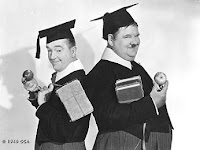SCENE II. A hall in
the castle.
Enter HAMLET and
Players
HAMLET
Speak the speech, I
pray you, as I pronounced it to you,
trippingly on the tongue: but if you mouth it,
as many of your players do, I had as lief the
town-crier spoke my lines. Nor do not saw the air
too much with your hand, thus, but use all gently;
for in the very torrent, tempest, and, as I may say,
the whirlwind of passion, you must acquire and beget
a temperance that may give it smoothness. O, it
offends me to the soul to hear a robustious
periwig-pated fellow tear a passion to tatters, to
very rags, to split the ears of the groundlings, who
for the most part are capable of nothing but
inexplicable dumbshows and noise: I would have such
a fellow whipped for o'erdoing Termagant; it
out-herods Herod: pray you, avoid it.
trippingly on the tongue: but if you mouth it,
as many of your players do, I had as lief the
town-crier spoke my lines. Nor do not saw the air
too much with your hand, thus, but use all gently;
for in the very torrent, tempest, and, as I may say,
the whirlwind of passion, you must acquire and beget
a temperance that may give it smoothness. O, it
offends me to the soul to hear a robustious
periwig-pated fellow tear a passion to tatters, to
very rags, to split the ears of the groundlings, who
for the most part are capable of nothing but
inexplicable dumbshows and noise: I would have such
a fellow whipped for o'erdoing Termagant; it
out-herods Herod: pray you, avoid it.
First Player
I warrant your
honour.
HAMLET
Be not too tame
neither, but let your own discretion
be your tutor: suit the action to the word, the
word to the action; with this special o'erstep not
the modesty of nature: for any thing so overdone is
from the purpose of playing, whose end, both at the
first and now, was and is, to hold, as 'twere, the
mirror up to nature; to show virtue her own feature,
scorn her own image, and the very age and body of
the time his form and pressure. Now this overdone,
or come tardy off, though it make the unskilful
laugh, cannot but make the judicious grieve; the
censure of the which one must in your allowance
o'erweigh a whole theatre of others. O, there be
players that I have seen play, and heard others
praise, and that highly, not to speak it profanely,
that, neither having the accent of Christians nor
the gait of Christian, pagan, nor man, have so
strutted and bellowed that I have thought some of
nature's journeymen had made men and not made them
well, they imitated humanity so abominably.
be your tutor: suit the action to the word, the
word to the action; with this special o'erstep not
the modesty of nature: for any thing so overdone is
from the purpose of playing, whose end, both at the
first and now, was and is, to hold, as 'twere, the
mirror up to nature; to show virtue her own feature,
scorn her own image, and the very age and body of
the time his form and pressure. Now this overdone,
or come tardy off, though it make the unskilful
laugh, cannot but make the judicious grieve; the
censure of the which one must in your allowance
o'erweigh a whole theatre of others. O, there be
players that I have seen play, and heard others
praise, and that highly, not to speak it profanely,
that, neither having the accent of Christians nor
the gait of Christian, pagan, nor man, have so
strutted and bellowed that I have thought some of
nature's journeymen had made men and not made them
well, they imitated humanity so abominably.
First Player
I hope we have
reformed that indifferently with us, sir.
HAMLET
O, reform it altogether. And let those that play
your clowns speak no more than is set down for them;
for there be of them that will themselves laugh, to
set on some quantity of barren spectators to laugh
too; though, in the mean time, some necessary
question of the play be then to be considered:
that's villanous, and shows a most pitiful ambition
in the fool that uses it. Go, make you ready.
your clowns speak no more than is set down for them;
for there be of them that will themselves laugh, to
set on some quantity of barren spectators to laugh
too; though, in the mean time, some necessary
question of the play be then to be considered:
that's villanous, and shows a most pitiful ambition
in the fool that uses it. Go, make you ready.
Exeunt Players


